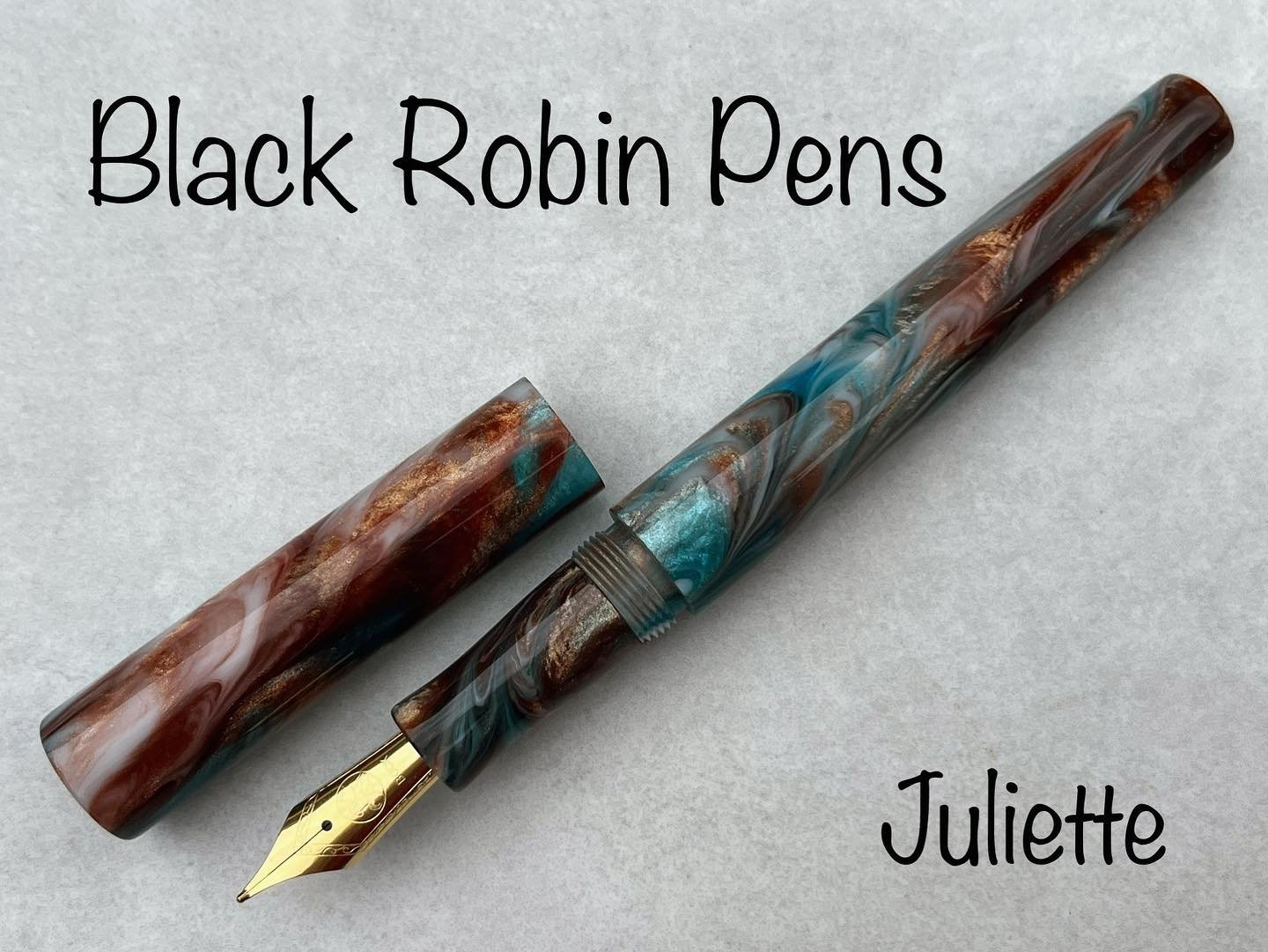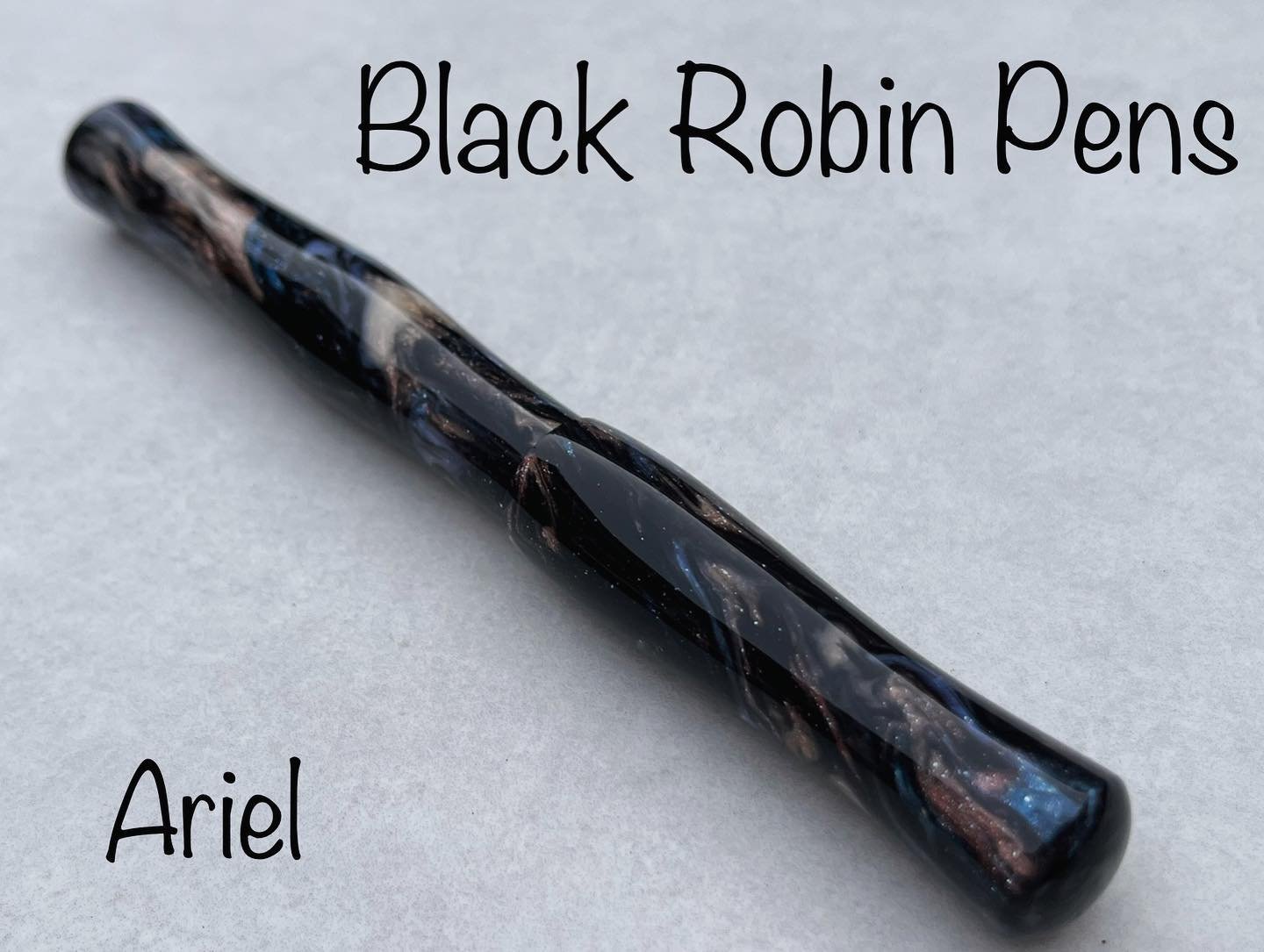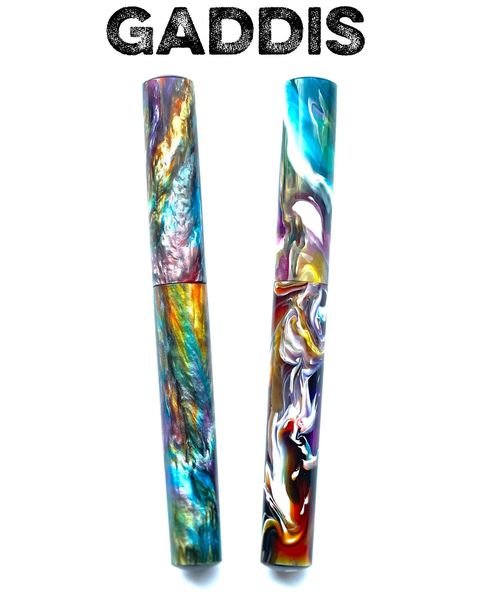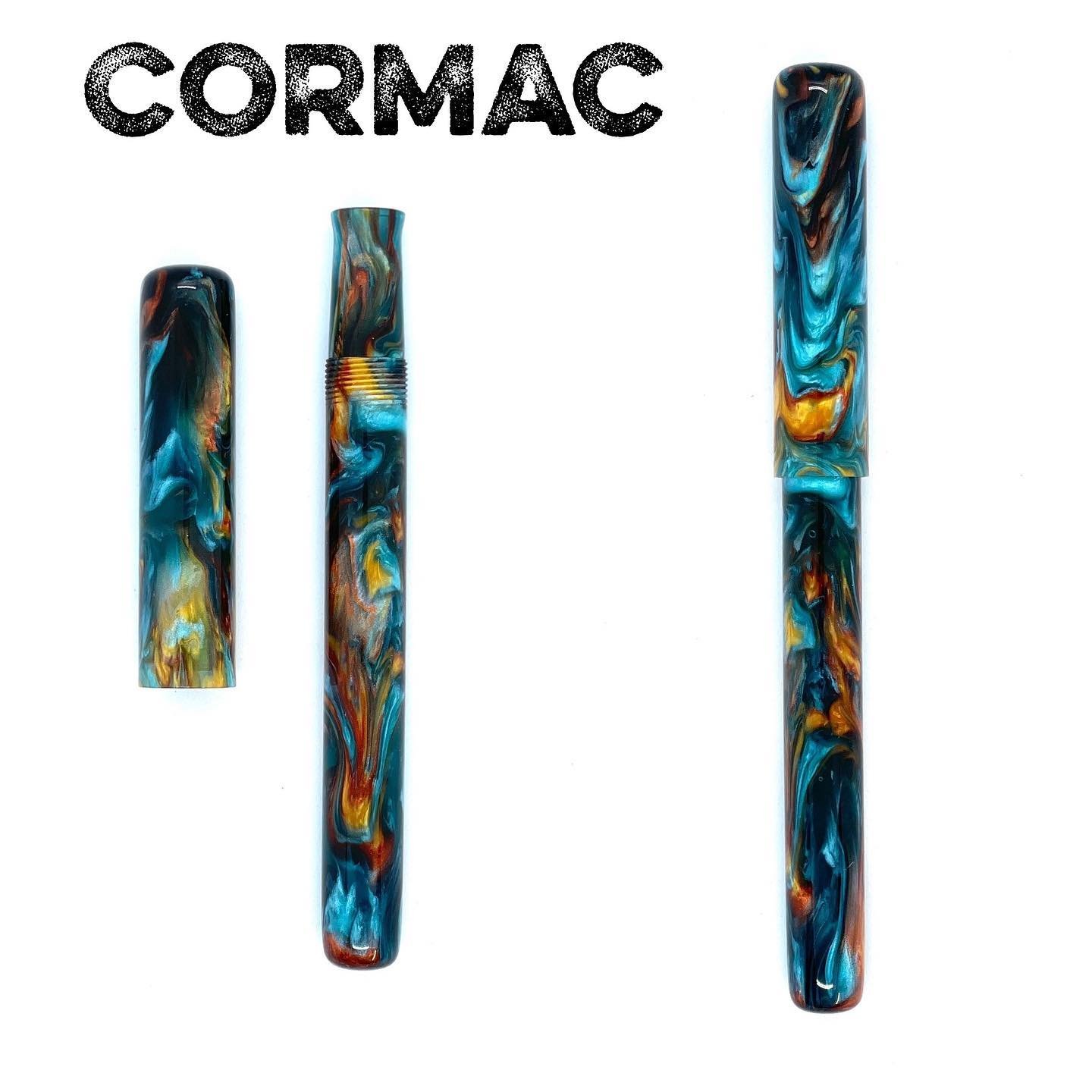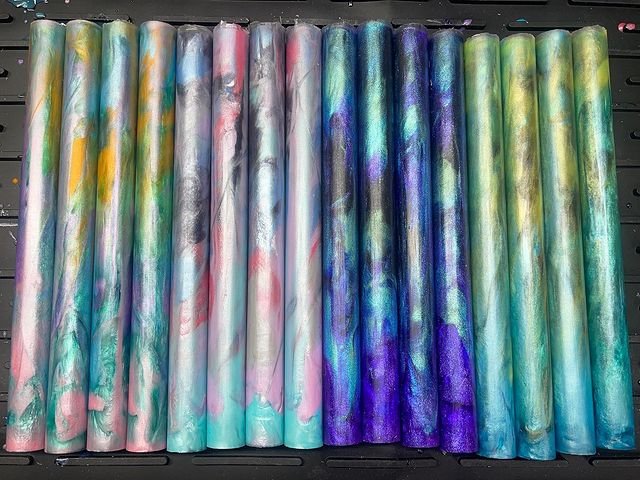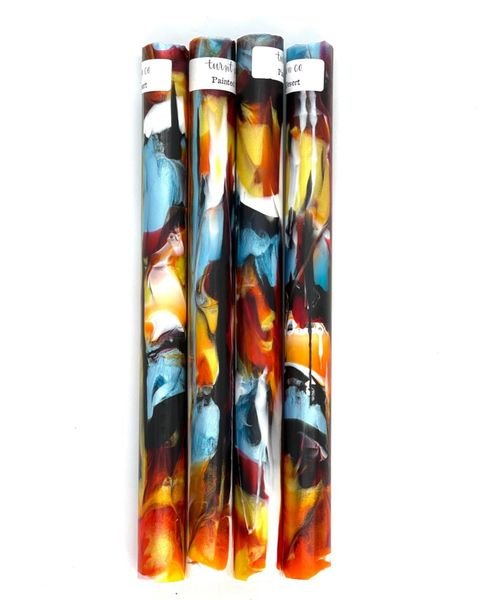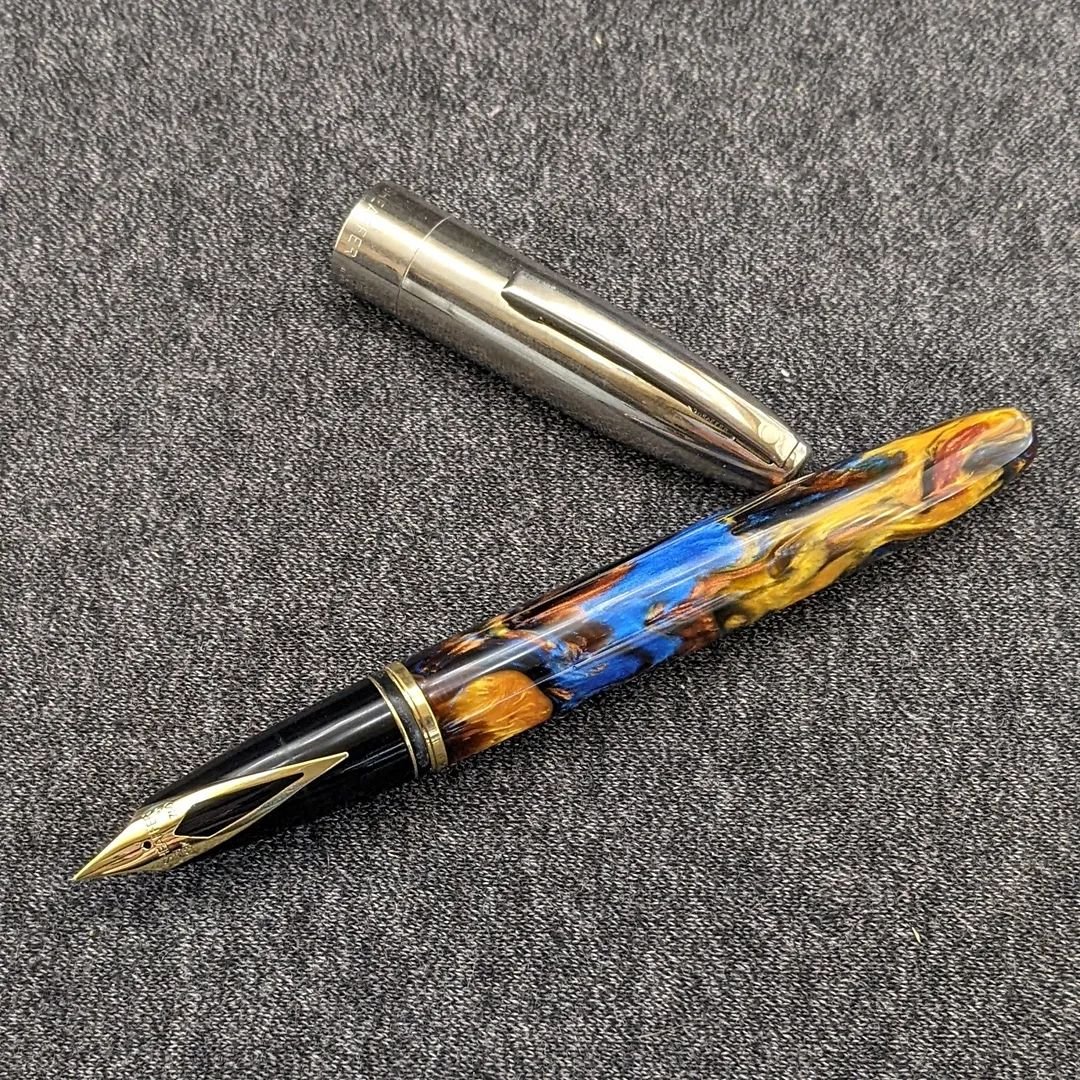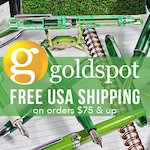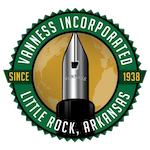(Caroline Foty's first fountain pen was a 1970s Sheaffer No Nonsense that still writes perfectly. Since she discovered pens by independent makers, she wants "one of each, please" and wants to meet all the makers. Maybe you do, too. She lives in Baltimore with pens, cats, and all kinds of fiber arts supplies.)
“All the world’s a page/ And all the men and women merely writers…”
OK, maybe that isn’t what Shakespeare said. But you can do some journaling with Prospero, or write a letter with Juliet (or with Titus if you’re feeling angry,) if you’re using a pen made by Meg Blackburn of Black Robin Pens.
Blackburn wanted an identifiable theme for her pens, and “Den (of @denscustompens) had already taken gods and goddesses.” As a resident of Yorkshire in the UK, she found Shakespeare names to be a natural and evocative choice.
Blackburn’s making journey started with the gift of a hand-me-down wood lathe, and she made bowls and other decorative wood items at first. At a wood turning show she visited with her mother they saw some kit pens, and her mother asked her to make one.
Without the videos made by Bob Blanford, showing how to turn each component of a kit pen, she might not have gotten off the ground. However, the first lathe was quickly upgraded to a better wood lathe, and kit pens quickly began to feel too restrictive in terms of shape and design.
Just as the pandemic began in 2019, she began to make kitless pens, turning to Ashley Lawrence of Rockster Pens and Jason Miller of Jason Neil Penworks for advice on getting started. Her first pens, shared on Instagram, were well received, and soon she realized she could forego returning to the corporate world following her maternity leave and work part time as a pen maker and 'part time' as a mom to her now three year old daughter instead.
Blackburn gives some credit to the pandemic for allowing so many pen makers to get off the ground. “More people were writing letters, and since they couldn’t take holidays or go out, they had more money to spend.” She quickly distinguished herself for her innovative pen shapes. “I wanted to bring something new to the community, to come up with something other people aren’t doing.” Her most popular model, the Ophelia, resulted from working with a customer who asked for “something curvy,” and this led to further inspiration for models with curves. She now has ten or twelve different shapes available.
As more makers take the leap to making their own blanks, Blackburn is attracted by the idea and is looking into it. “It would let me offer a complete custom experience from the material to the pen.” However, upgrading her shop to a metal lathe is higher on the list of things to do.
Perhaps her most surprising pens are those made from recycled skateboards. She spotted a Canadian company making various kinds of things from skateboards, and thought here was something no one was doing with pens. Her first skateboard pens were built around kit components. The first year, she made two pens, ten the second year, sixteen this year, and she has twenty reservations for next year. Because the process is so labor-intensive, she limits the number she will make, and demand exceeds supply. She’s produced a series of Instagram reels showing all the steps. Broken skateboards are much easier to find in the US than the UK but a university skateboard club has helped keep her supplied.
When asked about her favorite pen she didn’t make, Blackburn first refers to pens by Eric Sands of Atelier Lusso – whenever she sees one of his pens she thinks, “I wish I’d made that!” The pen sent to her by Terry Tourngeau of Hogtown Pens in the As The Pen Turns podcast Secret Santa exchange of 2021, made with rosewood and diamondcast material, is a current favorite. A demonstrator version of her Iago model is one of her own that she can’t let go of, partly because of all the polishing work involved in making a clear pen.
While Blackburn would like to be a vendor at a pen show sometime, partly to support the community including the collectors who are not on Instagram, she says she can’t keep enough stock to actually do a show. With sixty percent of her work being commissions, she can make at most three or four stock pens a week, and her pens sell almost the minute they are posted on Instagram. This demand has also led her to decide not to support a website, as there is usually nothing to list as available.
She finds much to like about being a pen maker. “I find it very meditative and stress-relieving. It’s a methodical step by step process that is calming. And my work doesn’t rely on anybody else as it used to in the corporate world.”
In common with other makers, she cites the community spirit that prevails among pen makers, and how much she gains from them. “If I was in the shop and had a problem, there are about ten makers I could ask for help, and I try to pay that forward as well. If everybody is making a better product, that is good for all the makers.”
More than half of Black Robin’s sales are to repeat customers, and owning more than one Black Robin is the rule rather than the exception. “When someone comes back for another pen, I know I must be doing something right!”
Black Robin Pens can be found on Instagram, at Black Robin Pens.



